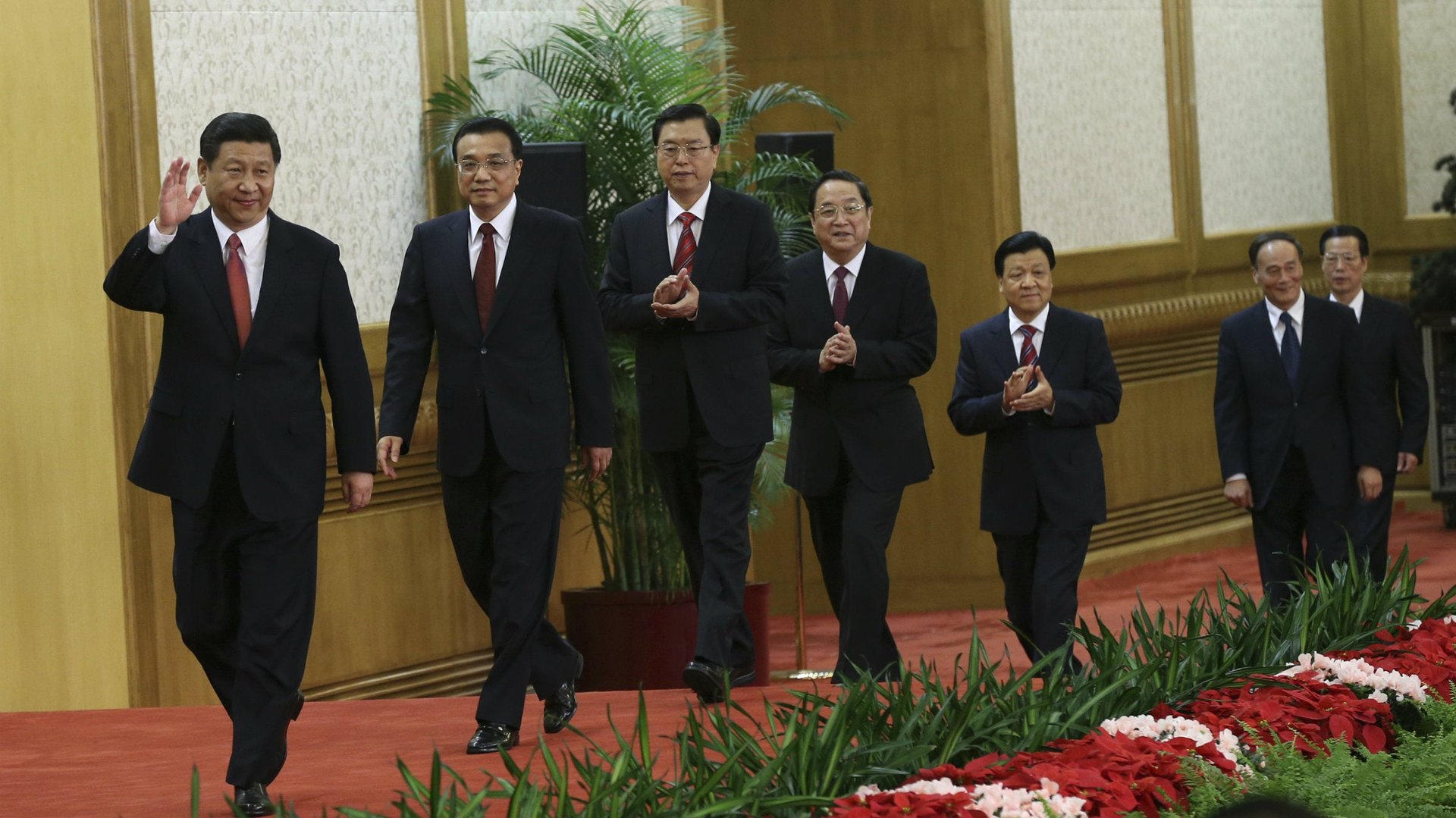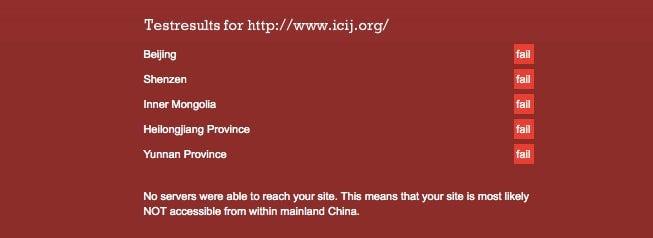More than half of China’s most powerful officials have links to tax havens. Now what?
Five current and recent members of the Chinese Communist Party’s most powerful group, the Politburo Standing Committee, have family members who are stashing assets in overseas tax havens, according to a wide-ranging report published Jan. 21 by the International Consortium of Investigative Journalists.


Five current and recent members of the Chinese Communist Party’s most powerful group, the Politburo Standing Committee, have family members who are stashing assets in overseas tax havens, according to a wide-ranging report published Jan. 21 by the International Consortium of Investigative Journalists.
China’s leadership has embarked upon a high-profile drive to root out corruption, pushed most visibly by president Xi Jinping, who has called it one of China’s “severe challenges,” and has vowed to fight both small-time “flies” and big-time “tigers” who reap illicit gains. He may want to start with his own family: Xi’s brother-in-law, Deng Jiagui, who is married to his older sister Qi Qiaoqiao, owns “millions of dollars in luxury properties in Hong Kong, Shenzhen and Beijing,” according to the ICIJ report, and controls the offshore entity “Excellence Effort Property,” which is registered in the British Virgin Islands.
Owning property through an offshore tax haven is not necessarily illegal, but the secrecy the setup allows raises questions about why investors would go to such great pains to conceal their assets. China has been on a push to increase transparency for the wealthy and keep assets from leaving the country, but top party members have balked at fully disclosing their wealth.
The report also names the son and son-in-law of former premier Wen Jiabao, a first cousin of ex-president Hu Jintao, and the daughter of ex-premier Li Peng among the more than a dozen relatives of China’s politically-connected elite who have amassed millions of dollars in combined assets, and hold British Virgin Island or other off-shore companies.
The scope of the report (it includes some 22,000 Chinese and Hong Kong names, relies on “millions” of leaked documents and on Jan. 23 will include a searchable database of the documents linking names to assets) could prove a watershed moment for the party, forcing leaders to address the uncomfortable fact that positions of power are being used to great vast personal wealth across the party, rather than being confined to a few outliers. Until now, that has been the elephant in the room amidst all the talk of “tigers” and “flies.”
A New York Times report in October of 2012 found relatives of Wen had $2.7 billion in assets, some stashed overseas, and a Bloomberg report in June of 2012 investigated Xi’s “millionaire relatives.” Just this week, Wen issued a letter denying the allegations to a Hong Kong paper, the first time he has addressed them. Some China-watchers saw it as a sign that the party was now ready to investigate its once untouchable top leadership.
Previously, the Chinese leadership has ignored these reports of corruption at the highest levels, or explained them away as politically-motivated attacks by China’s enemies, blocking both The New York Times and Bloomberg from the Chinese internet. The journalist group that produced the most recent report concentrates on cross-border stories, includes journalists from over 60 countries and relied on Chinese mainland journalists for this piece, which could make it harder to ignore.
It is equally possible, though, that the party will stay true to form. Earlier this month, the website of the Guardian, which participated in the report, was blocked in China, although it had not published any negative stories about China in recent days. Another partner, Sydney’s The Global Mail, remains unblocked.
Just after the ICIJ report was released, the journalist group’s website was also blocked in China, according to GreatFirewall.org, which monitors web censorship in China:
